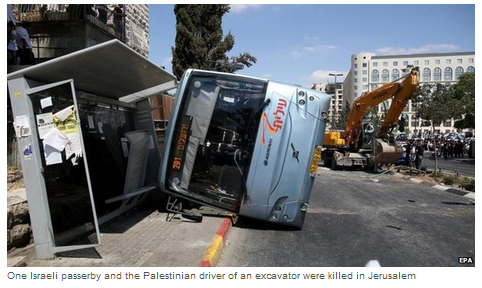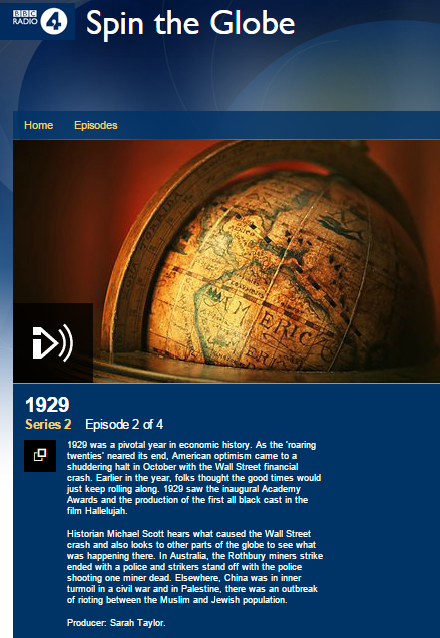From September 5th until September 9th inclusive, the BBC News website’s Middle East page carried an article titled “Iran’s Rouhani shifts responsibility for nuclear talks“.
The article relates to the recent move by the Iranian president in which the foreign ministry was given the responsibility of conducting negotiations with the P5+1 (US, UK, France, Russia, China and Germany) with regard to Iran’s nuclear programme in place of the Supreme National Security Council which has held the role up to now.
The article repeats Iranian claims regarding the intentions of its nuclear programme three times, presenting those claims on an equal footing with IAEA findings.
“Iran insists its nuclear programme is for peaceful ends” (photo caption)
“Western countries fear Iran wants to develop nuclear weapons – a claim it denies.”
“Iran has refused to obey, saying it intends to enrich only for power station fuel or other peaceful purposes.”
The BBC report implies that Rouhani’s move indicates some sort of shift in Iranian policy, describing Foreign Minister Mohammad Javad Zarif as a “political moderate” (for more on ‘moderation’ in Iran, see here) and informing readers that:
“Correspondents say the change could herald a less hardline Iranian stance in the talks.”
Of course the practice of quoting unnamed sources denies BBC audiences the ability to make their own judgements regarding the reliability of the information provided. The article also includes a side-box of analysis by BBC Persian Service correspondent Bozorgmehr Sharafedin.
However, this BBC article neglects to make it sufficiently clear to readers that whilst Rouhani’s foreign ministry may now be running negotiations with the P5+1, that certainly does not indicate any kind of change on the much more important issue of Iran’s nuclear programme itself.
“Seyyed Hossein Naqavi Hosseini, a member of the Majles Foreign Policy and National Security Committee, clarified this week that shifting the responsibility for the nuclear talks to the Foreign Ministry does not mean handing over the nuclear dossier from the Supreme National Security Council to the Foreign Ministry. He said that the council will remain in charge of the nuclear dossier and the nuclear decision-making process, while the Foreign Ministry will be in charge of implementing those decisions and negotiating within the framework of the decisions made by the council. Hosseini said that transferring the responsibility for managing the negotiations to the Foreign Ministry is intended to let Iran speak with a single voice on its foreign policy when addressing the international community.”
The BBC’s article also does not inform readers of the possible motivation behind Rouhani’s move (which it is difficult to imagine was carried out without the knowledge and approval of his superiors). Rather than heralding “a less hardline stance”, this move should be examined within the framework of attempts to get the West to reduce the sanctions on Iran which have had a detrimental effect on its economy in the last two years in particular.
“Oil revenues have halved due to the sanctions, causing the value of the rial to plunge and inflation to soar to above 40%.”
Indeed, Rouhani showed no sign of accommodating any shifts in Iran’s stance on the nuclear issue in a recent address.
“Iran will not give up “one iota” of its nuclear rights, Iranian President Hassan Rowhani said in a speech to clerics, Mehr news agency reported on Tuesday. […]
“Our government will not give up one iota of its absolute rights” on the nuclear issue,” Rowhani said, repeating a mantra frequently used by his predecessor Mahmoud Ahmadinejad.”
Neither does the BBC bother to remind its readers that Rouhani has previous experience on the issue of avoiding sanctions:
“He agreed temporarily to halt Iran’s uranium enrichment in 2003, but not because he intended to comply with UN resolutions or the agreement reached with the British Foreign Secretary Jack Straw and his French and German counterparts (the E3) on October 21, 2003. He did so as a tactical move that spared Iran from sanctions while not impeding overall progress towards its nuclear goals.”
During the time that this article appeared on the BBC News website, two additional items presenting a soft portrait of the new Iranian president and his administration ran concurrently – see here and here. The ‘Rouhani the moderate’ theme adopted by the BBC is clearly impinging on the BBC’s ability to provide its audiences with the full range of information necessary for their understanding of this particular international issue and it is disappointing to see that lessons in media objectivity which should have been learned after over-enthusiastic responses to the ‘Arab Spring’ appear to have gone unlearned.






